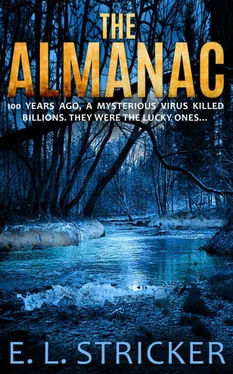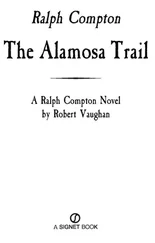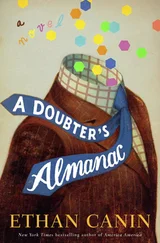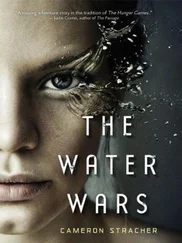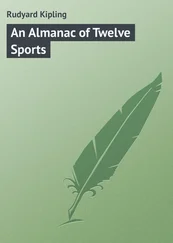He raised his fist high for all of them to see it: the red-stemmed creeper, first of the malice plants.
Illya stuffed the creeper into his mouth, chewed it up and swallowed it down.
The villagers jostled each other, fighting for a clear view of what would happen next. Their murmurs swelled louder. No one knew how the creeper killed. No one had eaten one of the malice plants within any of their lifetimes.
Would it drop him quickly? Would he stagger about, frothing at the mouth, his face purple as he choked to death? Or would he double over as his stomach cramped up in agony?
Illya glanced back over his shoulder at Conna, who had lowered his bow and was gaping at Illya with his mouth hanging open.
Nothing happened.
The moments stretched out as the people goggled at him, wild-eyed, whispering to their friends. Illya felt nothing, no sign that he was about to drop dead in the middle of the square.
He smiled. An absurd urge bubbled up inside him, filling him with wild, giddy feelings and the overwhelming need to laugh. He chuckled then laughed out loud. The people stared, no doubt wondering if this was the way the plant killed: an excess of joy.
But Illya was not dying. He felt wonderful. It was the first time he had eaten in days, since the night before the missed trap when he had eaten a tiny bit of a fish he had caught for Benja.
He pushed people aside and ran to the place in the mosaic. He knew what he would find, though he had not looked at it since the night of the first shoots, since the night it had been impressed on his calf when he watched Sabelle. There, beside the cattail root and the spring ramp, only a short distance from the sunchoke itself: the red-stemmed creeper was laid out in tiny stones.
“This plant!” he yelled, pulling more of it up from the ground. The creeper was everywhere. There was even a little vine of it coming up to overlap its stone counterpart.
“This is a plant for eating,” he said, holding it up in the air. “I haven’t died yet, and I’m not going to die. Look, all of you! It is right here in the mosaic. This picture is a cornucopia. It was made to celebrate a fat time when our ancestors had enough to eat.” He looked around. Their faces were shocked, disbelieving.
“That can’t be right,” Charlie muttered.
“You think I’m crazy,” Illya said. “I know what you are all thinking. It’s on the wall.” The villagers gawked at him, some nodding, others simply staring in confusion.
Clearly, most of them still thought that he was bound to drop dead at any moment. But more and more time was passing since he had eaten the plant. Without evidence to the contrary appearing, soon they would have to start considering that he could be right.
Illya walked to the fire. The crowd parted for him with fear, as if he was a ghost. It was true in a way, he thought. He had gone out and survived the night and now was back among them. He had eaten the creeper and should be dying now, but that wasn’t happening either. He grabbed the end of a half-burned stick from the edge of the fire pit and pulled it out.
Using the charred end of his stick, he drew a shaky symbol on the stones of the square.
?
“This,” he said, “we have always thought it was a fern fiddlehead, but no one could ever say what that little dot was. A slip of the chisel we always said, right?” He looked around. They were listening.
“It’s not a plant. It is a symbol. I saw it all through the book.” At the mention of the book, a few people grumbled. Illya held up his hands.
“I know you don’t trust me. The book has brought nothing but trouble. But listen. The people who made that wall still knew how to read. They would have known this symbol.” Illya took a breath.
“Wherever I saw it in the book, it came after a question, something they didn’t know. It’s a mark, an unsure mark,” he said and paused, letting the meaning of his words sink in.
“There are two plants beside it on the wall. The creeper and the mushroom. One of those plants is in the cornucopia and the other isn’t. Someone must have eaten them both on the same day. Maybe they died, and the people didn’t know which one had the malice. No one would have wanted to risk trying it again. But there was a time when someone put the creeper here, to celebrate that it was food.”
By now, more than enough time had passed that something should have happened to him if the creeper had malice. Below it on the wall was lace top; a plant that would freeze the body and steal the breath in minutes according to legend.
Illya pulled up another handful of the creeper, stuffed it into his mouth, and swallowed.
“You can wait as long as you need to see that I come to no harm from it. Once you believe me, you will also see that this is what is going to get us through the winter.”
All around eyes widened, followed by a hum of voices. The creeper was everywhere, it grew in the smallest cracks and spread across the ground. If everyone gathered it, with the meat smoking beside the fire, there would be enough food to see them through.
“That doesn’t change what he did,” Conna yelled, his face red and furious. He must have sensed the shift in the crowd, how they now clustered around Illya with curiosity, their urge to punish him fading. He seemed afraid to raise his bow again. Instead, he whirled around and pointed at the field of dead plants.
“He lied to us. Remember what happened the last time we trusted something from that book of his.”
“I did,” Illya said. “I found the parent plants with disease and said nothing. It was only because I hoped that it would not happen here. If it hadn’t, we would be digging sunchokes now.” He dropped his eyes. The full magnitude of what they had lost, the security, the hope, hit him with a wave of piercing sorrow.
“What Conna didn’t tell you is that I had come to tell everyone about it that morning and he spoke first.” Illya turned on Conna and fixed him with a stare. He narrowed his eyes, daring Conna to do what needed to be done, to come out with everything, to face it all. Conna broke the stare and shifted his gaze around, catching the eyes of the handful of Enforcers who were standing nearby.
“You won’t admit it to them?” Illya asked, his words gaining strength. He took a breath. Around him the people looked from him to Conna and back again. Conna pressed his lips together.
“If they are stupid enough to forget what you have done, it won’t be on me,” Conna said.
Beyond the barren field, the golden grass swayed in the wind. There was silence, filled, as silence often is, with small sounds. Crickets in the grasses, the rustling leaves of the oak tree above them, the small shuffling and continual arranging of the people shifting their weight and looking to see what their neighbors would do.
No one wanted to be the first to act.
He looked from face to face. There were some there who were intelligent enough to know he was right, who wouldn’t be swept away by hysteria, he was sure of it.
Charlie, he thought, surely would be on his side, but the man didn’t meet his eye.
He had not forgiven Illya for the Soil-Digger fiasco. It hadn’t been Illya’s idea either, but he couldn’t know that.
Ban was in the crowd, and Illya looked to him hopefully, but he was deep in conversation in low tones with another man.
The silence stretched on.
“What about the people in the cellar, people who haven’t done anything wrong?” Illya asked.
“What will happen in midwinter? Will the food still be shared with them when people begin starving? Or will they be left to starve?”
The silence thickened.
Aaro stepped out from behind Conna. Slowly, he walked across the square, darting a swift glance over his shoulder at his brother as he passed. Illya tensed as he neared, but something about the boy’s face made him pause. His eyes were hard and his jaw was clenched, working visibly. He met Illya’s eyes, pressed his lips together, and nodded. He stood beside Illya and turned to face his brother.
Читать дальше
